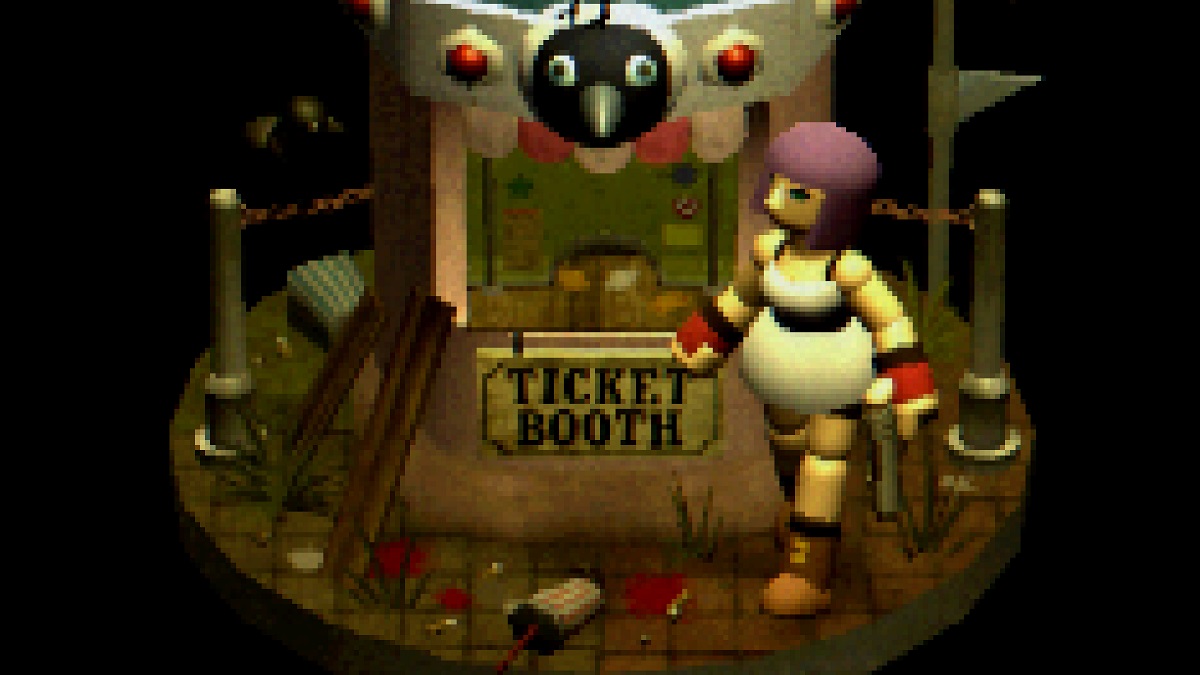There are now more PS1-inspired horror games out now than there were actual horror games on the PS1. That isn’t a milestone that was crossed by Crow Country, it’s just an observation.
It’s hard to say what, exactly, made the PS1 the perfect visual home for horror. It’s possible that it’s because it was modern enough to enable various ways of depicting the horror, but old enough that your imagination was left to fill in some of the blanks left by the low-poly, low-resolution graphics. It could also be because it was probably the last console that a lot of people played through fuzzy RF, and something about video noise makes the experience feel more tangibly real.
Nonetheless, returning to the blocky pixelation of the early 3D era brought about a renaissance in the horror genre, and if Crow Country is any indication, it’s still a long way from running out of gas.

Crow Country (PC [Reviewed], PS5, Xbox Series X|S)
Developer: SFB Games
Publisher: SFB Games
Released: May 9, 2024
MSRP: $19.99
Crow Country is heavily inspired by the survival horror sub-genre, taking cues from games like Resident Evil and Silent Hill. This not only is apparent from the visual style, but the puzzle design as well. The eponymous amusement park that you explore was built by people with strange notions towards door locks and where keys should be stored.
You play as Special Agent Mara Forest, who is investigating the disappearance of Edward Crow, the namesake creator of the amusement park Crow Country. The park closed down two years prior to the start of the game, following the injury of a guest and other strange happenings.
Crow Country is played from a ¾ angle. While the graphics try and replicate the low-resolution blockiness of the PS1 hardware, it does so in an interesting way. The environments are actually quite detailed in a way that wouldn’t be possible on the console, and that’s because, while they’re 3D in actuality, they’re supposed to look like the pre-rendered 2D backgrounds used in games like Resident Evil and Parasite Eve.
This is done surprisingly well, since you’re still able to freely rotate the camera, but through the use of clever lighting, it still manages to replicate the awkward 3D of the era. Characters and interactive objects still stand out because they don’t have the same sheen as everything else in the environment, so the whole effect comes off quite cleverly.
While the camera is at a fixed angle, you’re still free to aim for the heads and shoulders, knees, and toes of your enemies. Headshots do more damage (if they have anything identifiable as a head), but attacking from a close range is the most important factor.
While being a survival horror game, you can’t carry much ammunition for your weapons, but vending machines throughout the environment will provide a bit more to keep you going. Enemies in the environment will stay dead, but as you progress, areas change, and new enemies will take their place. This means that the whole “survival” part of survival horror is pretty understated. It isn’t difficult to stay alive, but that’s maybe not the point.
When I played the demo back in October, I was kind of worried that Crow Country wouldn’t do enough to differentiate itself from the games that inspired it. However, I think what manages to separate it is the aloof confidence it presents itself with.
The dialogue is laced with humor, but it’s rarely in a self-deprecating way. When it does poke fun at its own video-gaminess, it does it with a sort of wink without laboring on a joke. It’s not a parody of survival horror, it’s just amiable and light-hearted.

While I didn’t find Crow Country to be all that scary (I’m rarely horrified by horror in general these days, so I’m not the best judge of fear factor), I was extremely impressed by the plot and storytelling. I probably shouldn’t be surprised with Adam Vian behind the pen.
The story is largely told through documents in the environment and characters that you meet. There aren’t really any cutscenes, but there are moments of dialogue. Mostly, you’re given pieces of the greater mystery, and it’s extremely competent at giving you just enough that you’re able to start figuring things out before it’s more overtly told.
There are threads to the mystery, and you follow them, bit by bit, until they all converge in the end. Information that ties into Crow Country’s overall conclusion is handed to you directly from the start. If you’re really sharp, you can guess some of the twists, but even then, I did not see the ending revelation coming.
If anything, I’m jealous of how masterfully the story is told. But, again, it’s to be expected from SFB Games.

When all is said and done, Crow Country clocks in at around 6-8 hours. There are some optional bosses and secret puzzles that you can do that will stretch things out a bit. Then, once the game is complete, some extras get unlocked for your next playthrough.
Crow Country doesn’t exactly rewrite the playbook for survival horror. It leans pretty heavily on those that came before it. However, what it builds on top of the foundation is extraordinarily impressive. This is easily one of the best horror games I’ve played, and it doesn’t even seem like it’s trying that hard. It maybe lacks some of the more psychological themes that have made others stick firmly in my memory, but the playfulness and confidence of Crow Country more than make up for that. It’s definitely worth a visit.
[This review is based on a retail build of the game provided by the publisher.]









